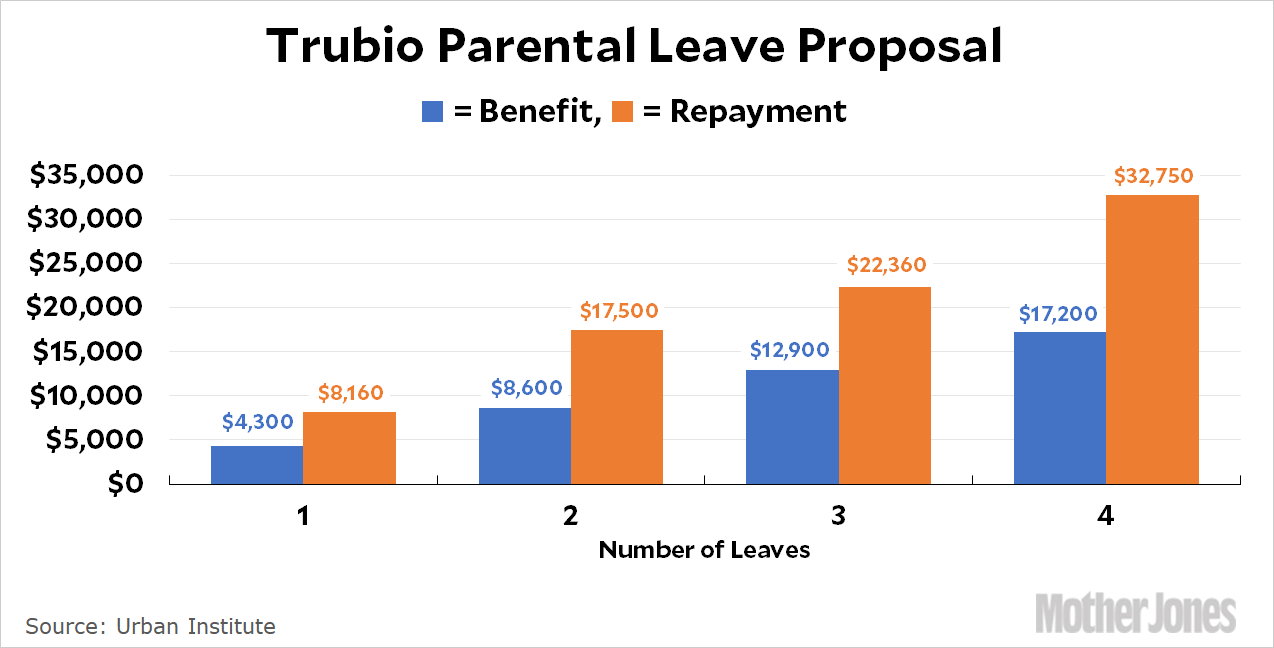Perusing my LA Times this morning, Michael Hiltzik brings me up to speed on the latest GOP plan for paid family leave:
The idea of government-sponsored paid family leave is gaining popularity at the state level and in Washington, where Sen. Marco Rubio (R-Fla.) and Ivanka Trump are “strategizing” to bring more Republicans into the fold….It’s a good idea that would finally bring the United States into line with every other high-income nation on Earth, as a recent analysis by the Urban Institute points out. But the Urban Institute also observes that the Rubio-Trump idea for financing the program through Social Security is a terrible idea.
Wait. Social Security? What does that have to do with paid family leave? Here’s a previous Hiltzik column on the genesis of this proposal from Kristin Shapiro and Andrew Biggs:
Shapiro and Biggs propose offering mothers and fathers the equivalent of Social Security disability for up to 12 weeks of leave….But unlike traditional Social Security disability coverage, the recipients would be required to pay the money back by delaying their Social Security retirement benefits.
Details aside, let’s call this what it is: a loan. The Trubio plan basically offers new parents a 12-week loan that they have to pay back later. So why bring Social Security into this at all? Why not just handle it like student loans, with new parents getting a bank loan guaranteed by the federal government and repayment delayed for, say, ten years? Banks would love the guaranteed profits. It’s true that parental leave loans would be less lucrative than student loans since they’re only for 12 weeks, but maybe payday lenders could get into the act. That would make it a twofer for Republicans.
It would also make it clear to recipients what they’re getting themselves into. “Delayed retirement” 40 years in the future seems pretty fuzzy to most people. A loan that has to be paid back in a decade is a lot more concrete. And at least it would be cheaper than the Trubio version. The Urban Institute, using their fabulous DYNASIM model, recently calculated an estimate of benefits vs. repayments for the Trubio plan, and it looked like this:

On the bright side, the Trubio plan turns out to be fairly progressive since it inherits the progressiveness of Social Security payments and benefits. On the not-so-bright side, everyone with kids has a big loan to be paid off when they retire. This does not strike me as an especially family-friendly policy.

















